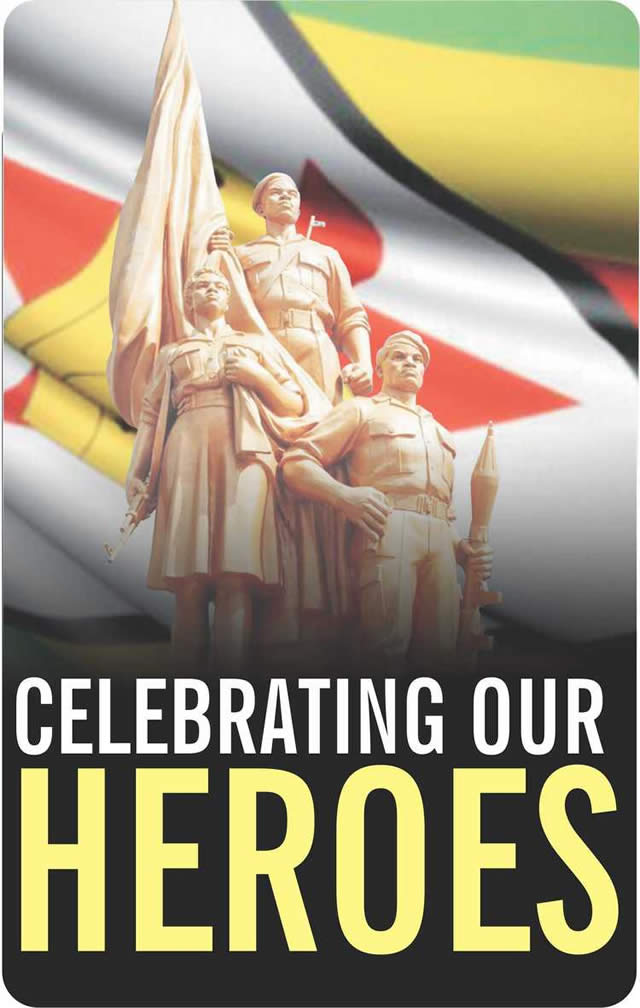George Marange: Nationalist, sub-chief and man of the people

 A VETERAN politician and nationalist, Cde George Marange died on August 20, 1997 in Mutare, at 67. He was diabetic. Cde Marange was born on June 26, 1930 at Old Umtali (now Hartzell). The Maranges are a prominent family who held the chieftainship in their area. At the time of his death he was a sub-chief, commonly known as Ishe Rubatso.
A VETERAN politician and nationalist, Cde George Marange died on August 20, 1997 in Mutare, at 67. He was diabetic. Cde Marange was born on June 26, 1930 at Old Umtali (now Hartzell). The Maranges are a prominent family who held the chieftainship in their area. At the time of his death he was a sub-chief, commonly known as Ishe Rubatso.
The late George Rubatso Marange, was the next in line to assume the chieftainship after the current Chief Marange. Unfortunately, this was not to be as his untimely death robbed the people of Marange and the whole nation of a great leader.
He did his primary education at Zuze Primary School in Makoni District before proceeding to Hartzell where he did his secondary education. After leaving Hartzell in 1950, Cde Marange went to Makerere University in Uganda where he attained a teaching certificate, a Certificate in Public Relations and a Diploma in Public Administration and Social Welfare.
On returning to the then Southern Rhodesia, now Zimbabwe, Cde Marange worked as a teacher for 10 years in several schools around Manicaland.
In 1958, he joined the Southern Rhodesian African National Congress led by Cde Joshua Nkomo.
He was an active youth alongside Cde Enos Chikowore. With the banning of the ANC by the repressive white regime which was trying to stamp on African nationalists’ incessant clamour for majority rule, Cde Marange immediately joined ANC’s successor, the National Democratic Party (NDP), in 1960.
He became NDP’s Manicaland Regional Secretary, a position he continued to hold in Zapu after the banning of NDP. When Zapu was banned, Cde Marange became, the People’s Caretaker Council (PCC) deputy treasurer.
Cde Marange was energetic in relentlessly mobilising people for the struggle for national liberation.
In 1964, Cde Marange was detained at Wha Wha, Marandellas (Marondera), Gwelo (Gweru), Gonakudzingwa, Salisbury (Harare) and Khami prisons. At Gonakudzingwa he lived in Camp 4 and worked together with prominent figures like Cde Joseph Msika, the late national heroes Joshua Nkomo and Lazarus Nkala.
The dedicated selfless teacher he was, Cde Marange used his time in detention to teach other detainees who wanted to further their academic education. He was so popular with other detainees that at one time he was elected Chairman of Detainees with the task of articulating their problems to the establishment.
In the 1970s he was elected Zapu Secretary for Youth. In 1979 he was a (PF) Zapu delegate to the Lancaster House Conference.
Since the split in Zapu in 1963 which resulted in the formation of Zanu, Cde Marange’s main aspiration was to see the two parties united again. In 1977 he encouraged unity talks between the two parties which culminated in the formation of the Patriotic Front (PF).
He had the advantage of being eloquent in both Shona and Ndebele, the two major national vernacular languages. So he could communicate with many people in both Zanu and Zapu and their respective liberation forces Zanla and Zipra without raising undue suspicion.
After Independence Cde Marange again worked hard to bring harmony and unity between PF-Zapu and Zanu- PF when the political situation degenerated in the country because of the dissidents menace.
His objectives were realised with the signing of the Unity Accord in 1987 and the coming of peace once again. In the period leading to the Unity Accord, Cde Marange had been PF- Zapu’s National Organising Secretary so he was appointed a member of the National Task Force which had the duty to facilitate unity. He mobilised people in Manicaland and made them aware of the basic need to unite.
Cde Marange first stood for election to become a Member of Parliament in 1980. He successfully stood for election in 1990 and became MP for Gokwe Central.
He was one of the few MPs who represented constituencies outside their home areas showing that he was a national leader. He strongly condemned regionalism, racism and ethnicity.
His re-election as Gokwe West MP in 1995 was testimony that the people of his constituency trusted him. As a Member of Parliament, he served on various parliamentary committees. He was a member of the Zanu-PF Central Committee at the time of his death.
At the time of his death, Cde Marange was survived by his wife and six children.
A Guide to the Heroes Acre









Comments